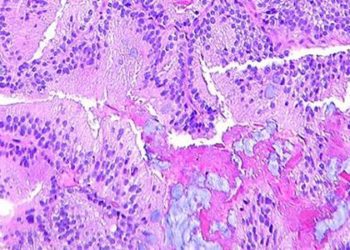Exercise associated with improved quality of life during chemotherapy
1. In a randomized controlled trial of over 200 breast cancer patients undergoing chemotherapy, both supervised, high-intensive as well as low-intensity, home-based physical activities programs had improved quality of life indicators compared to patients with usual care.
2. The high-intensity exercise program demonstrated additional significant improvement in muscle strength and chemotherapy completion compared to usual care.
Evidence Rating Level: 1 (Excellent)
Study Rundown: Adjuvant chemotherapy improves outcomes among breast cancer patients, but is associated with side effects including fatigue, loss of physical fitness, and overall reduced health-related quality of life. Previous studies have demonstrated that exercise can help to reduce these effects, but the intensity and type of exercise that is optimal for this subset of patients remains unclear. The purpose of this randomized trial was to evaluate the health-related quality of life effect of 2 exercise regimens: a high-intensity, supervised, combined resistance and aerobic program (OnTrack), and a home-based, low intensity exercise program (OncoMove) versus usual care. The study randomized 230 breast cancer patients beginning adjuvant chemotherapy to OnTrack, OncoMove, or usual care for the duration of chemotherapy until 6 months post-chemotherapy treatment. At the conclusion of this trial, patients in both the OnTrack and OncoMove program demonstrated significant improvement in pain, nausea/vomiting, and the ability to return to work compared to usual care. Furthermore, the OnTrack program demonstrated significant improvement in cardiorespiratory fitness, muscle strength, and chemotherapy completion rate compared to usual care. These effects were limited to the period of chemotherapy interventions; all groups returned to functional baseline 6 months following chemotherapy. The study supports the use of organized exercise programs for breast cancer patients undergoing adjuvant chemotherapy. This trial is strengthened by the large sample size and randomized design. However, the results may not be generalizable to patients of other cancers who face other comorbid conditions which increase barriers to exercise (i.e. laparotomy for colorectal patients).
Click to read the study in JCO
Relevant Reading: The effect of physical exercise on cancer-related fatigue during cancer treatment: A meta-analysis of randomised controlled trials
In-Depth [randomized controlled trial]: The Physical Exercise During Adjuvant Chemotherapy Effectiveness Study (PACES) was a randomized, multi-center trial in the Netherlands comparing low intensity exercise program (OncoMove) and a supervised, moderate to high intensity combined resistance and aerobic exercise program (OnTrack) in breast cancer patients undergoing adjuvant chemotherapy. The primary outcomes were cardiorespiratory fitness, muscle strength, and fatigue. Secondary outcomes included self-reported activity levels, ability to return to work, and adherence to chemotherapy regimen. Patients were assessed prior to start of chemotherapy, post-chemotherapy, and 6 months after chemotherapy. A total of 230 patients were randomly assigned to OncoMove (n=77), OnTrack (n=76), and to usual care (UC) (n=77). At the conclusion of the trial, there was a significant difference in cardiovascular fitness testing (Effect Size (ES): 0.45; p<0.001) and fatigue (ES: 0.63; p<0.001) for patients in the OnTrack cohort compared to usual care. Both OnTrack and OncoMove was associated with significant improvement in pain (OnTrack: ES: 0.46; p=0.011; OncoMove: ES: 0.60; p<0.03) compared to usual care. Patients in the OncoMove group had the fewest number of patients that required adjustments to chemotherapy dosages. No differences were found in all parameters when patients were evaluated at 6 months post-chemotherapy.
Image: PD
©2015 2 Minute Medicine, Inc. All rights reserved. No works may be reproduced without expressed written consent from 2 Minute Medicine, Inc. Inquire about licensing here. No article should be construed as medical advice and is not intended as such by the authors or by 2 Minute Medicine, Inc.









